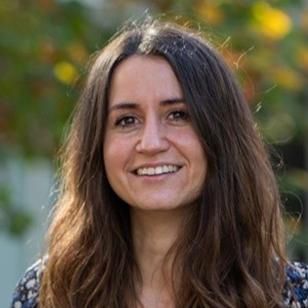Expanding Spaces for Inclusive Peacebuilding: Insight from the Torino Forum
December 9 marks the 5th anniversary of the historic and ground-breaking UNSC Resolution 2250 on Youth, Peace and Security (YPS). The resolution, at the time of its adoption, was the first to recognize the vital role that young peacebuilders play in countering violent extremism and promoting lasting peace. The United Nations has continued to engage and expand work on YPS through two subsequent resolutions [2419 (2018) and 2535 (2020)] that seek to better integrate youth perspectives, and cement the role of youth peacebuilders as agents of change capable of contributing to conflict prevention, mitigation, and resolution.
I have been particularly impressed with resolution 2535 which is considered the most progressive and action-oriented YPS resolution so far. The language of this last resolution not only reinforces the commitments already made in the previous ones, but also operationalizes them by requiring the UN Secretary-General to submit a biennial report to the Security Council on the implementation of the YPS agenda and associated Resolutions.
Recognizing the agency of youth
Unlike the earlier resolutions, UNSCR 2535 bolsters a more human-rights approach to YPS by emphasizing the need to acknowledge the strong link that exists between the protection of human rights and equal access to peace and justice. Significantly, this resolution recognizes, for the first time, “the structural barriers that limit the participation and capacity of young people”. It calls for more concrete actions, such as appointment of youth focal points, who can act as a bridge between UN agencies and young grass-roots peacebuilders. It encourages Member States to consider increasing funding for youth-led and youth focused organizations. The new additions are timely and relevant in light of the current COVID-19 pandemic which threatens to underscore and exacerbate inequalities.
With us commemorating the 5th anniversary of UNSC Resolution 2250, I have found myself reflecting on the effectiveness of these different resolutions. Although it is encouraging to see progress, I believe more can be done to support young peacebuilders, particularly where meaningful participation is concerned. We can no longer have high-level-policy debates that involve very little consultation with youth or youth organizations. Nor can we continue to have peace talks that invite young people only to have them placed in spaces where discussions are led by old men who limit the views that can be express. We need to find new ways to ensure that youth voices are truly included and not tokenized. Young men and young women aren’t simply looking for a seat at the table, they want to widen the table.
Creating a space for meaningful participation
I am a firm believer in this and I am particularly proud of the role I played in organizing the United Nations System Staff College’s (UNSSC) five day Virtual Torino Forum. The event created a space for robust dialogue, and learning between YPS and WPS communities. Through the generous support of the Italian Ministry of Foreign Affairs, we were able to bring together hundreds of participants made up of women and youth peacebuilders from across the globe.
As an ardent peacebuilder, it was heartening to see so many young people interacting and sharing ideas on the advancement of the YPS and WPS agendas. For me, the real added-value was the centrality of young men and young women’s voices, who really took the lead throughout these five days online, raising awareness on the challenges they face, and sharing good practices on how to cope with them. It showcased the tireless work that young people are doing in their communities, and it was a strong reminder that young people are endowed with innovative ideas and great potential that must be fulfilled. They are not a “problem to solve”, but rather the “solution to the problem”, especially at a time when the world faces so much uncertainty.
In the words of our keynote speaker Hajer Sharief - “We have people looking up at us, we have people waiting for us to do everything that can be done to end wars and armed conflict, and prevent them from happening…and we can do more.”
As we commemorate Resolution 2250 on Youth, Peace and Security (YPS) I call on governments, academia, and policy makers to acknowledge young peacebuilders and think about how we can put words into action, and do more to advance youth peacebuilders in the next five years and beyond.
